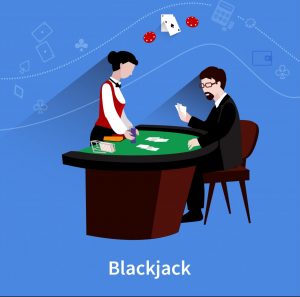
Is this the real life? Or is it just Fantasy?
Freddie Mercury
Trade for a living!
Ahh … imagine what that would be like. All you would need is a laptop with an internet connection.
You will not need to work for anyone else.
You will be able to work any time.
You will be able to live anywhere.
What would that be like for you?
Where would you live? Where will you travel to? What would you do with all that time?
“Is this the real life? Or is this just Fantasy?”
But is it possible to make a consistent income from the business of trading?
The short answer is yes.
The long answer, unfortunately, is a little bit more complicated.
To make money from trading you have to treat trading like you would treat any other business. Trading is a business unlike any other. It gives you financial freedom, time freedom and location freedom. But it IS a business. And you have to treat it like one.
Like all businesses, the business of trading needs a system. A system that is workable, repeatable and duplicable. Only then can you depend on it to work for you over and over again.
Let’s look at an analogy.
The Casino Analogy
Think of it this way. The global gambling industry is worth over $265 billion. Now, this market has essentially two players – the Casino and the Gambler.
But which of these two is a business? – that’s right, the Casino.
Why?
Because the Casino has a system.
When the gambler places a bet, the Casino has to take the other side of the bet. That is, the Gambler is betting against the Casino, and the Casino is betting against the Gambler.
But why is it then, that the Casino always wins?
The Gambler wins sometimes, but the Casino always wins. So much so that the Casinos invest millions and millions of dollars to keep the gamblers playing.
So what is it that the Casinos do that the Gamblers don’t?
They follow a system.
Let’s look at the maths.
The way the games are designed, the Casino has a statistical advantage. In the game of Black Jack for example, the Casino has a statistical advantage of 4%. What this means is that of all the games that are played on a Black Jack table, after all the wins and losses are summed up, the Casino will make 4%.

So if a Black Jack table plays games worth $1 million, the Casino will make 4% or $40,000.
But to get this $40,000 the Casino has to take each of those bets. They can’t pick and choose which bet they will take. They HAVE to take all the trades. Think about that for a bit.
In contrast, the Gambler can bet how much ever he wants, can start when he wants, and stop when he wants.
And therein lies the dilemma.
You see, the Casino sees the game for what it is – a game of chance. But the Gambler tends to forget that. So he thinks that he can influence the outcome of the game by doing something. He blows on the dice, he prays to lady luck, or even does a little dance.
But the fact of the matter is that it is a game of chance. That’s it.
And as philosophical as we try to make it, chance can be defined by probability.
This is the problem AND the solution.
Let’s understand this by tossing a coin.
Suppose I toss a coin and you call heads. What are the odds of the coin turning up heads? 50% right?
But if I toss a coin, you call heads, and it comes up tails, will you say that the coin is rigged?
No. Why? Because the probability of 50% works only on a number of tries. The more tries, the closer the distribution of heads and tails.
So if I toss the coin 100 times. You call heads every time. You will be right around 50 times. It could be 49, it could be 51. But close to 50.
And that’s how it works.
The probability of an event translates to the real world over a series of tries.
Let’s head back to the Black Jack table.
The Casino, as I mentioned earlier, has a 4% advantage over the Gambler.
But what about the Gambler?
Let’s break down his numbers.
The Gambler is dealt two cards and the dealer is dealt two cards. Now, the chance (probability) of either of them being close to 21, the winning number, is what? 50%, right?
If the Gambler is closer to 21, he wins, and he get 2 times the amount he bet. So we can say his risk to reward ratio is 1:2.
Now, there are other options that are given to the Gambler, he can increase the bet, he can split the cards, and of course he can ask for more card.
But, if we look at the numbers without complicating things further, we get this analysis:
Probability of success: 50%
Risk to Reward: 1:2
Number of bets: 100
Winning bets: 50
Losing bets: 50
So if let’s say, the Gambler bets $100 and only $100 on each bet, what will be his profitability?
Winnings: 50 x $100 x 2 = $10,000
Losses: 50 x $100 = $5,000
Net: $10,000 – $5,000 = $5,000
What do you think?
Is this feasible?
If you say “Yes, if the assumptions are kept constant”, you are absolutely right!
You see, the Gambler can make this kind of money, only if:
- He keeps his risk the same across all bets
- He doesn’t change his probability by opting for the enticing possibility of saving a losing bet or making more money.
- He places 100 bets
In other words – if he has a SYSTEM!
Now, I hate equating trading to gambling, but the business of trading has the same dynamics.
Let’s have a look.
If I place a trade, let’s say I buy HDFC, there are only two possibilities – either the stock price will go up or it will go down. What then is the probability of making a profit? – that’s right, 50%.
[In reality, of course, this is much more complicated. If we consider the market sentiment, the stocks performance, and of course the price itself, the probability can change drastically. The probability of success is something we monitor very closely in the business of Trading. If you want to know more about this, read my article on testing.]
Likewise, the risk defined in our Risk Management Plan is like the bets placed in the Casino.
And finally, depending on the strategy we use, the Risk to Reward ratio also gets defined.
Now, if we run our system, we get the same results:
Probability of success: 50%
Risk to Reward: 1:2
Number of trades: 100
Winning trades: 50
Losing trades: 50
Profit: 50 x $100 x 2 = $10,000
Loss: 50 x $100 = $5,000
Net: $10,000 – $5,000 = $5,000
Mind you, 50% is defined as chance or luck. Considering you would have spent months, if not years, studying the market, this figure is likely to be higher. Having said that, if you add a stop loss, this number changes.
After all, how many times have you got stopped out and then had the market turn around and go in your favour? – too many times, right?
Therefore, what this number finally turns out to be is determined by a number of factors, including, market conditions, seasonal variation, or unexpected events like the pandemic.
But the number one thing that this number is influenced by is your ability to understand the market. In fact, this number is like your credit score, it tells you how good you currently are. Or how good your trading strategy is.
So, how do we know what this number actually is?
By testing of course!
If you want to know more about testing like a professional, have a look here.
 Is it possible to trade for a living?
Is it possible to trade for a living?
Is it possible to make consistent income from the market?
Is it possible to live the dream?
Yes, but you have to set up your trading system.
Once you have your trading system, just like in any other business, you can continue to enjoy its rewards for a very long time.
[To understand the components of a trading system, click here.]

